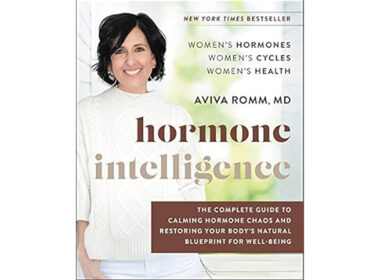Many girls are taught in their middle- or high-school health education classes that eating disorders look one of two ways: Either someone depriving themselves almost entirely of food (anorexia), or someone bingeing and purging (bulimia nervosa). While these two disorders are real and present, diet culture has muddied the waters between “healthy eating,” and “unhealthy obsession.” The truth is, eating disorders can look a lot of different ways, which is one reason why they are often overlooked. What’s more, when it comes to infertility, eating disorders may be the culprit behind an estimated 18% of cases.
Healthy eating is more nuanced than “diet culture” realizes
In the fertility world, diet is a big topic of conversation. And for a good reason. There is substantial evidence that eating a well balanced diet, full of fresh fruits and veggies, yields better health outcomes—and therefore better fertility health.
But it’s not necessarily clear that any one radical way of dieting (eliminating carbs, the keto diet, vegan) is the key to optimum health. Each woman’s body is a little different! (As are our microbiomes!)
Further, since access to healthy, fresh, and organic food isn’t equal among geographical locations and income statuses, the conversation can get a bit convoluted. For many, their ability to eat “healthy” is a more complicated problem than can be solved with a simple conversation about choosing an apple over apple juice.
Women struggling with a reproductive disorder or infertility will often turn to making changes in their diet in order to achieve hormonal balance. Some of these women go to great lengths to eat an impeccable diet that quickly turns into an obsession. When disordered eating becomes compulsive, all encompassing, it adds stress to a woman’s life. The sad irony is that stress is an even more influential factor on hormonal health and fertility than choosing organic groceries over conventional ones.
The “gentle nutrition” approach for better health and fertility
Gentle nutrition is a new concept that questions the status quo of diet culture. It allows for women (and men!) to feel how certain foods affect their body while also allowing plenty of space for joy and pleasure in eating. As a lactation counselor, I always say that babies are hard wired for milk to be about calories and comfort. Neurologically, we develop to need nourishment for reasons beyond simple caloric fuel. Maybe you actually do feel better eating less meat or limiting carbs. Gentle nutrition allows for you to make food choices that feel good physically in your individual body—which might include some Oreos after dinner!
Jayne Mattingly, a great advocate for gentle nutrition, started Recovery Love and Care out of healing from her own experiences with an eating disorder. She frequently works with women who are struggling with an eating disorder and dealing with infertility and hormonal issues. Because Fertility Awareness Methods (FAMs, also known as Fertility Awareness Based Methods or Natural Family Planning) help women become more in-tune with their bodies, they can work beautifully together with gentle nutrition as a tool for women while they heal their relationship with their bodies. I interviewed Jayne to learn more about her work with Recovery Love Care, and the connections between diet, eating disorders, and infertility, and why we need a broader conception of disordered eating.
Encouraging awareness of what eating disorders really look like
Recovery Love and Care started as a blog and morphed into what is now a virtual group practice for those struggling with disordered eating. Jayne received her Masters in Clinical Mental Health Counseling with a specialty in eating disorders, and as someone who identifies as fully recovered from an eating disorder, she realized there was a huge gap in eating disorder treatment. She noticed that women were left out to dry in the in-between space, not fully recovered and still needing support. “I noticed a huge misunderstanding surrounding eating disorders….With my education and specialty, I then started to mentor and coach those within their recovery, as supplemental support within their treatment. We work with a HIPAA compliant software database, and we offer supplemental support to provide wraparound services to those in recovery.”
Right now, Mattingly sees the greatest need for education around what an eating disorder (ED) actually looks like. “Eating disorders are vastly misunderstood. Most eating disorders are not visible to the eye…in that we usually expect those with EDs to “look a certain way,” as a society, we also expect EDs to fit into boxes….what we were taught in 8th grade health class is not the accurate depiction of eating disorders!”

Most young teens are taught that eating disorders manifest as anorexic, characterized by extreme thinness and avoidance of eating, or bulimia, often portrayed as someone who may appear as “overweight” and struggles with binge eating. But because Mattingly didn’t fit into either of these boxes, her eating disorder went undiagnosed from age 9 to 21. This led to further physical and mental health issues.
Going beyond weight loss to treat infertility and hormonal disorders
In her work with Recovery Love Care, Mattingly often works with women who are working to recover from an eating disorder and dealing with infertility or other hormonal issues. She claims that, “If we don’t feed the body enough, then the body compensates. Being “underweight” is incredibly risky and causes loss of menses, and other drastic hormonal changes.”
This problem is often compounded for women with polycystic ovary syndrome (PCOS), a very common metabolic and hormonal disorder. Often (but not always), PCOS is accompanied by a higher BMI and difficulty conceiving. Weight loss is the most frequent “prescription” for better hormonal health for women with PCOS and other hormonal disorders, but at what cost?
Mattingly counters the idea that a woman must have a certain BMI to be considered healthy. She has seen so many of her clients face discrimination based on their weight. “Women in bigger bodies are discriminated against within the medical world,” says Mattingly. “Their experiences and their relationships with their bodies and food are invalidated due to society’s hostile expectations of what a ‘healthy’ body should look like.”
Trusting our bodies, and trusting ourselves to overcome an eating disorder—and possibly infertility, too
“When it comes down to it, no matter your weight, your body needs to be fed!” Mattingly exclaims. “If we are over-exercising, and under-feeding our bodies, our bodies will do everything in their power to save us, and that usually means halting the fertility process. Body trust is a two-way street. Yes, it’s important for us to trust our bodies, but first our body needs to learn that it can trust that we will feed it, rest, and take care of ourselves.”
Mattingly’s two main axioms are proper nutrition (with no restrictions) and mindful movement (with no over-exercising). “Then our bodies will fall where they need to be… and usually that is above where our ‘goal weights’ are,” she says.
Utilizing Fertility Awareness Methods with gentle nutrition
Fertility Awareness Methods (FAMs) can help women along their journey of recovery from an eating disorder and possibly infertility, too. For starters, by knowing where they are in their cycles, women can respond to changing appetites and know when those changes are related to certain hormonal shifts. (Yes! Your appetite changes throughout your cycle.) Secondly, women often find that by charting their cycles, they gain a whole new appreciation for all the things their bodies can do. FAMs allow women to work with their bodies rather than against them.
It also doesn’t hurt that women’s stress levels tend to go down once they can live in harmony with their cycles and nutrition. When suffering from an Eating Disorder, birthday parties, Thanksgiving meals, weddings—all events centered around celebration and food—can be a time of high anxiety. Restriction of food often leads to a binge of food a mere hours or days later, which leads to feelings of guilt and, you got it, restriction again. When in recovery, women can live, enjoy these events, and their cortisol lowers which, of course, their hormones love too!
Together with fertility awareness, gentle nutrition can be a very healthy way for women to better know, love, heal, and accept their bodies.







